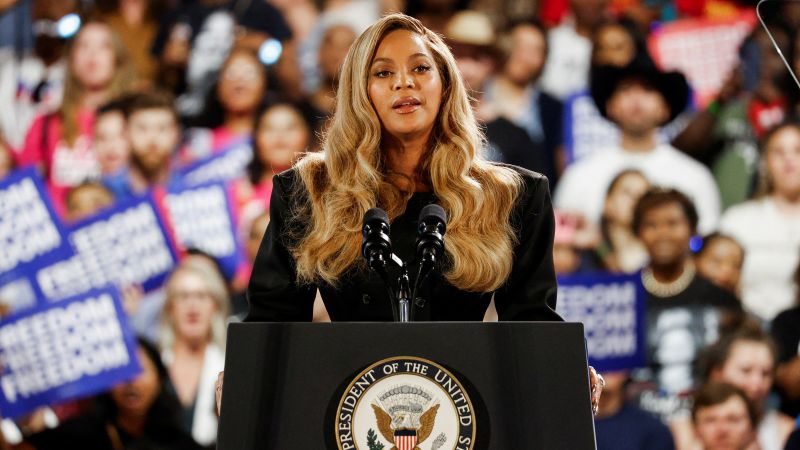Over the recent weekend, Donald Trump reignited controversy by calling for the prosecution of renowned music artist Beyoncé, basing his assertions on a claim that lacks any factual basis. In a social media post, he alleged that Beyoncé had received an illegal payment of $11 million in exchange for endorsing Kamala Harris, the Democratic presidential candidate, during an event held in Houston in October 2024. However, this claim has been met with significant scrutiny and has no foundation in reality.
The allegations stem from a federal campaign spending report, which highlights a payment of $165,000 made from the Harris campaign to a production company associated with Beyoncé. According to the campaign, this amount was categorized as a “campaign event production” expense and was necessary to cover the logistical costs of Beyoncé’s appearance. A spokesperson from the Harris campaign clarified that they hadn’t engaged in paying celebrities for endorsements, as such payments are not only uncommon but may also violate campaign finance laws.
The discrepancy between Trump’s claim of an $11 million endorsement payment and the documented $165,000 expenditure raises considerable questions regarding the veracity of his statements. There has not been any substantial evidence presented to back up the assertion of Beyoncé receiving an eight-figure amount. In fact, the claim began circulating on social media among Trump supporters after being inaccurately amplified over the past year, but investigations by reputable fact-checking organizations such as FactCheck.org and PolitiFact have not found any substantiation for this figure.
When questioned about the assertion, the White House did not immediately provide any evidence supporting Trump’s $11 million figure. In a previous interview, Trump utilized vague references to disclose his source, stating only, “Somebody just showed me something. They gave her $11 million.” Furthermore, the Harris campaign responded to these unfounded allegations through a statement released by Beyoncé’s mother, Tina Knowles. In November, Knowles publicly deemed the $10 million payment claim as a “lie,” pointing out that Instagram had flagged the information as “False Information.”
In an additional effort to set the record straight, a spokesperson for Beyoncé remarked to PolitiFact that the claim regarding a $10 million payment was “beyond ridiculous.” This assertion coincides with a consistent assertion by various stakeholders tied to the Harris campaign who emphasize that they did not engage in making such lavish payments to celebrities for endorsements.
In Trump’s latest social media post, shared shortly after midnight on a trip to Scotland, he reiterated the false claim, suggesting that Democrats admitted to making an illegal payment of $11 million to Beyoncé for her endorsement. Democratic officials, however, flatly reject this assertion, and the White House has not produced any explicit evidence supporting any such admission of payment.
Trump’s allegations extended beyond Beyoncé, as he also critiqued other payments made by the Harris campaign to groups affiliated with high-profile endorsers. He asserted, again without evidence, that these payments had not been accurately reported in spending records. Trump’s claims about payments for political endorsements being “TOTALLY ILLEGAL” also hold no merit, as no federal laws entirely prohibit endorsement payments, contradicting his assertive claims.
Wrapping up his call for action, Trump declared, “Kamala, and all of those that received Endorsement money, BROKE THE LAW. They should all be prosecuted! Thank you for your attention to this matter.” This statement reflects a pattern established by Trump, who has recurrently called for the prosecution of political adversaries. His recent statement concerning Harris and celebrity endorsements marks a notable escalation from a previous post earlier in the year, when he hinted at a “major investigation” but refrained from expressly calling for legal prosecutions.
Trump’s narrative not only highlights the contentious political landscape but also raises questions about the intersection of celebrity influence in politics and the ramifications associated with false information. As the discourse evolves, staying rooted in verified facts remains essential amid a climate characterized by uncertainty and heightened political tensions.











